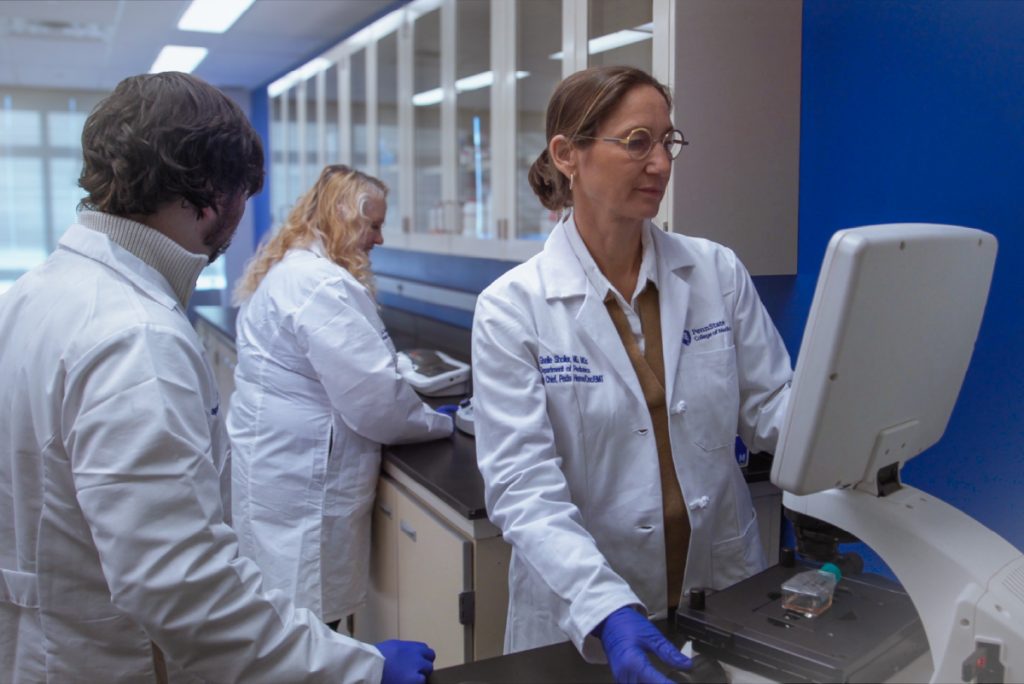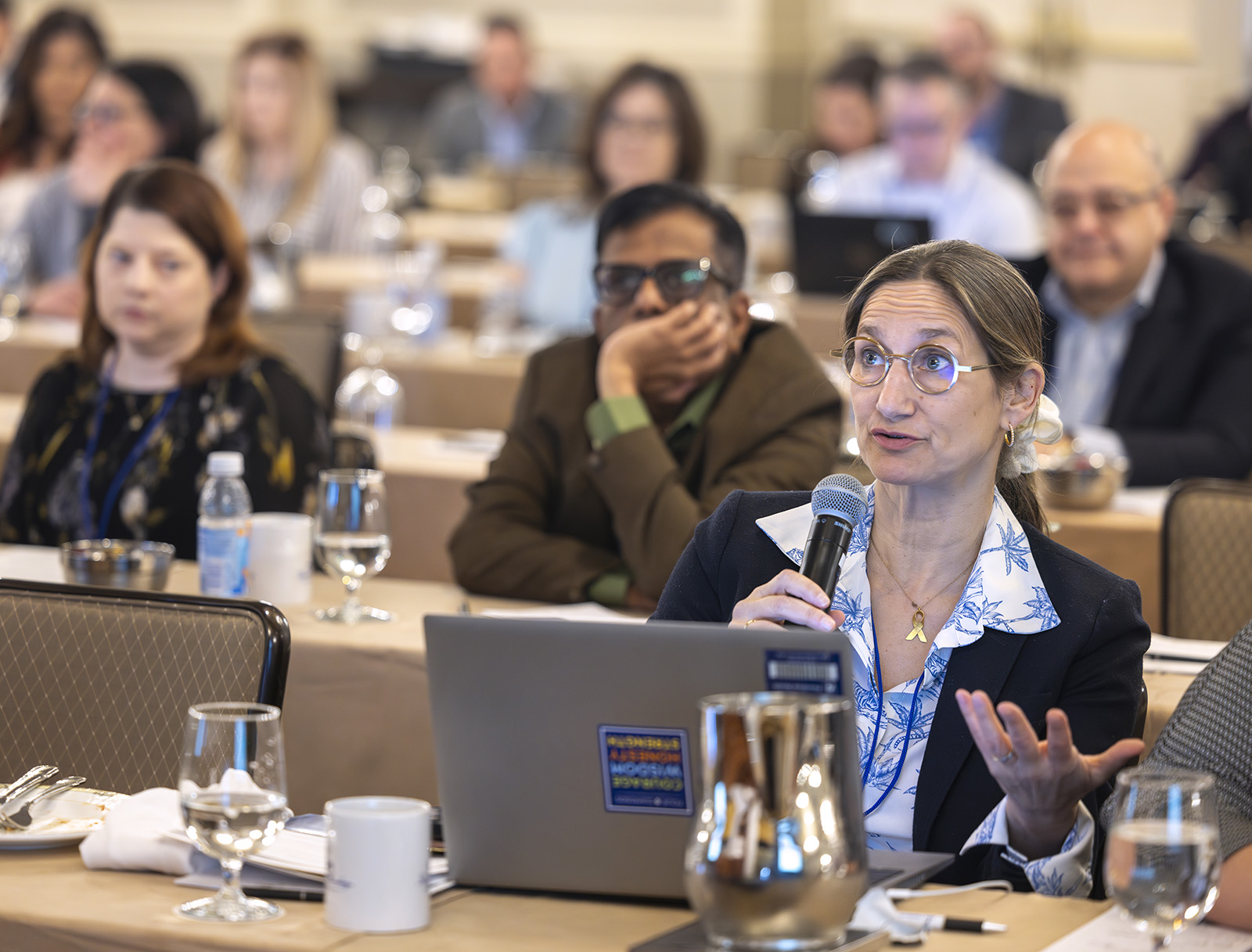Wei Li, associate professor of pedicatrics who was awarded a $150,000 grant from Curing Kids Cancer, opens his physician's white coat to show a Kids Curing Cancer shirt.
At Penn State College of Medicine and Penn State Health Children’s Hospital, physicians and researchers in pediatrics and pediatric specialties are dedicated to improving the understanding of disease mechanisms and to enhancing the treatment and prevention of childhood illnesses through research.

Penn State College of Medicine welcomes research consortium
Penn State College of Medicine is home to the Beat Childhood Cancer Research Consortium, a consortium of more than 50 hospitals that offer a worldwide network of childhood cancer clinical trials.
Giselle Saulnier-Sholler, MD
Director, pediatric oncology research, Penn State College of Medicine
Division chief, pediatric hematology/oncology, Penn State Health Children’s Hospital
Founder and chair, Beat Childhood Cancer Research Consortium
View clinical profile | View research profile
Recent publications:
- Eflornithine as Postimmunotherapy Maintenance in High-Risk Neuroblastoma: Externally Controlled, Propensity Score–Matched Survival Outcome Comparisons
- Molecular-guided therapy for the treatment of patients with relapsed and refractory childhood cancers: a beat childhood cancer research consortium trial
FDA approves pediatric neuroblastoma drug based on Penn State professor’s work
In 2003, the first year of her fellowship in pediatric oncology, two of Giselle Saulnier Sholler’s first three patients had died from neuroblastoma, closely matching the 30% survival rate expected at the time for high-risk neuroblastoma. She knew research was the only way to change these outcomes. Now, 20 years later, the U.S. Food and Drug Administration (FDA) has approved the first drug — based on Sholler’s research and clinical trials she led through the Beat Childhood Cancer Research Consortium — to reduce the risk of relapse for pediatric high-risk neuroblastoma patients.
“We’re hoping that DFMO is exactly what Ford needs. But if that changes in two to three years, we’re excited that working with Dr. Sholler gives us access to new treatment options. We feel confident that we’re connected to the world’s leading doctors and know we’re getting the best treatment we possibly can for him.”
– Bobby Bartle, father of 6-year-old Ford Bartle
Read more about Ford’s story

Dr. Giselle Sholler makes comments during a session at the Beat Childhood Cancer Research Consortium Annual Meeting at the Hotel Hershey on Feb. 29, 2024.
